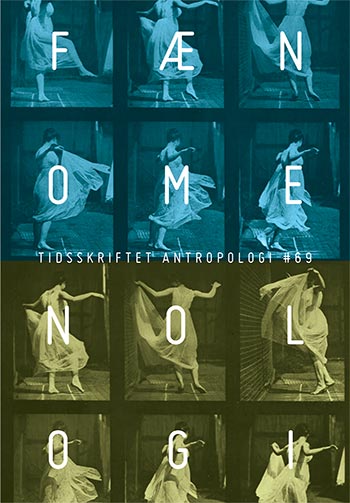Fænomenologien i Antropologien
DOI:
https://doi.org/10.7146/ta.v0i69.27303Abstract
Denne artikel redegør i store træk for fænomenologiens relevans og potentiale i antropologisk og kultursociologisk forskning. Der lægges ud med et teorihistorisk oprids, hvor centrale fænomenologiske tænkere (Husserl, Heidegger, Schutz og Merleau-Ponty) og begreber præsenteres. Efterfølgende diskuteres fænomenolo- giens rolle i og bidrag til antropologiske studier af forskellige temaer, nærmere betegnet sygdom, køn, menneskets forhold til naturen og globalisering, samt til de seneste årtiers erkendelsesteoretiske debatter. Afslutningsvis introduceres temanummerets resterende artikler.
Søgeord: Fænomenologi, antropologi, sociologi, krop, bevidsthed, erfaring, perception, epistemologi.
This article sheds light on the relevance and potential of phenomenology in anthropological and cultural sociological research. The first part of the article consists of a historical account of important phenomenological thinkers (Husserl, Heidegger, Schutz and Merleau-Ponty) and concepts. This leads me to a discussion of the contributions of phenomenology to anthropological studies of different subjects such as illness, gender, the relation between human beings and nature. I further look at how phenomenological insights have contributed to recent and current epistemological debates. Finally, I introduce the remaining articles of this special volume of Tidsskriftet Antropologi.
Keywords: phenomenology, anthropology, sociology, body, consciousness, experience, perception, epistemology.
Downloads
Published
How to Cite
Issue
Section
License
Ophavsretten til artiklerne i Tidsskriftet Antropologi tilfalder forfatteren.
Artikler publiceret i Tidsskriftet Antropologi må citeres, downloades og videresendes for ikke-kommerciel brug, under forudsætning af normal akademisk reference til forfatter(e) samt tidsskrift, årgang, nummer og sider. Artiklerne må kun genudgives med eksplicit tilladelse fra forfatter(e) og tidsskriftet.


